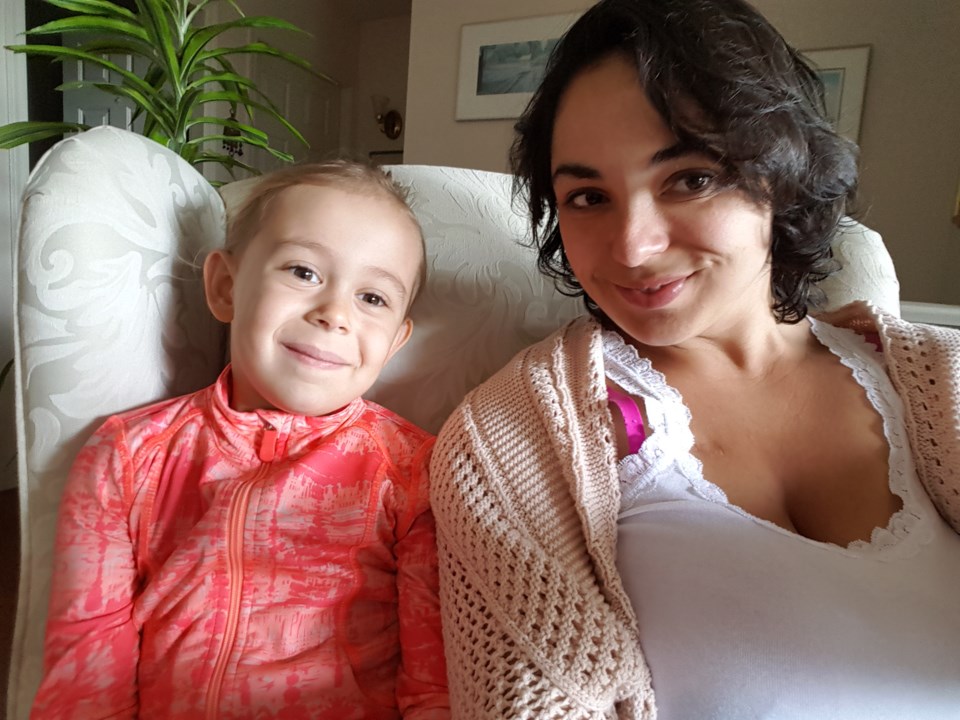Lisa Partridge is many things — she’s a wife, mother, daughter, friend — she looks like any other young woman you’d pass on a busy street. You’d never know that she is also HIV-positive.
Partridge, 27, contracted the disease as an infant. She was orphaned as a baby in Romania, and before she was adopted by her parents and brought to Canada, she fell ill and required a blood transfusion. The blood was tainted and she was infected with HIV.
The nurses warned the couple not to adopt her because she was sick. But they were happy to have her and brought her home to Courtenay on Vancouver Island. They started researching treatment options and found Oak Tree Clinic at Vancouver’s B.C. Women’s Hospital.
That was more than 20 years ago, and Partridge has been receiving care there ever since.
Even though she was diagnosed at a very young age, Partridge didn’t know that she was HIV-positive until she was a teenager. Her parents kept that information from her as a way to protect her.
Partridge says as a child she also had a heart condition and just thought all the appointments and medications were for that. She said she felt a sense of disbelief as she processed the news, but she came to accept that it’s just part of who she is.
She was lucky to have an accepting group of close friends who were mostly curious about the disease, wanting to learn more about it.
Established in 1994, Oak Tree Clinic at B.C. Women’s Hospital is the only HIV clinic in North America specifically designed to cater to the needs of women and children. It provides a “one-stop shop,” says medical director Dr. Neora Pick, an infectious disease specialist, caring for patients throughout the different stages of life from babies to the elderly.
Partridge has been going to the clinic regularly for most of her life. As a child the family made the trek to Vancouver every three months for checkups and appointments. Today, she goes every six months.
The inter-disciplinary team at Oak Tree Clinic, which includes doctors, nurses, pharmacists, psychiatrists, a counsellor, social workers and research staff, provides “holistic care for women and their families in a safe, supportive, non-stigmatizing environment,” says Pick, adding the clinic currently has 700 active patients.
The set-up of the clinic makes it seamless for patients to get the care they need at every stage of life. When Partridge and her husband wanted to start a family, obstetric and gynecological HIV specialist were there to help ensure a healthy pregnancy, and five years ago Partidge was able to deliver a healthy baby girl.
Pick said the majority of the time the disease is passed from mother to infant during delivery, but with proper medical care and medication HIV-positive women can deliver HIV-negative babies. In its 23 years, and in hundreds of pregnancies, Pick said the clinic has not seen one case of a woman in care passing the disease on to her baby.
Friday, Dec. 1 is World AIDS Day, which aims at spreading awareness about HIV and AIDS, and breaking the stigma that comes with the disease.
Pick says there are still many misconceptions about HIV and AIDS out there.
“It should really be treated as a chronic condition,” she says, similar to high blood pressure or diabetes, adding that an HIV-positive diagnosis it is not an automatic death sentence.
Medical science has progressed in the more than 30 years since the disease was first identified, and today, with proper treatment and medication, people who are HIV-positive are able to live to a normal life expectancy. As well, with treatment and medication the risk of transmitting the disease to others is close to zero, Pick said.
People who are HIV-positive will not necessarily develop AIDS, she said. And in cases where a patient does develop AIDS, treatment can help restore the body’s immunity.
Pick says people living with HIV have a right to health free of discrimination and stigma.
“One patient said to me, the stigma is worse than the disease,” she said.



